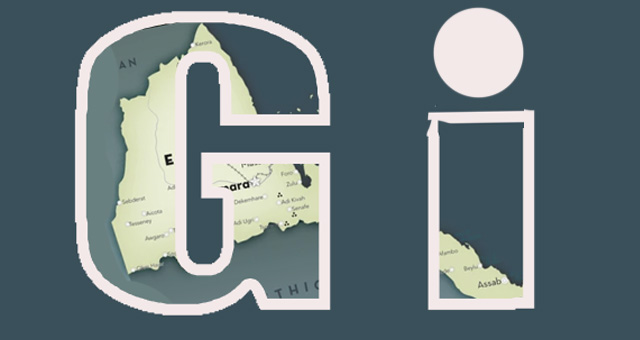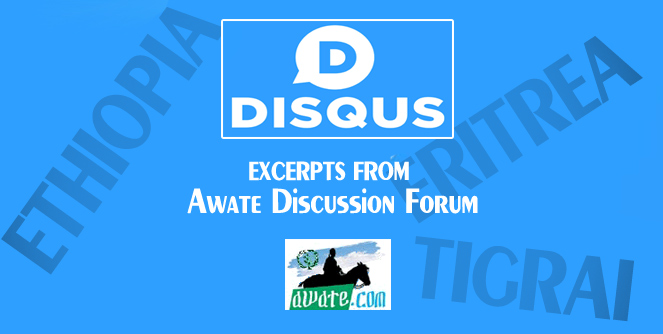The Fall Of Gazafi And The Eritrean-Libyan Relations
 “I was the one who created Libya and I will be the one to destroy it.” Qazafi as cited in The Economist1
“I was the one who created Libya and I will be the one to destroy it.” Qazafi as cited in The Economist1
“Mercenaries, Eritrean mercenaries!” they shouted and attacked Eritreans every here. Word spread by the agents of the regime that Eritreans were behind the failed coup attempt. Eritreans were shown as mercenaries on TV and one very familiar face in Khartoum appeared; it was no other but the well known Eritrean veteran, Ahmed Suwera. Sudanese army officials who knew him came to his rescue. Many Eritreans were beaten, seriously injured and detained during the few days after the coup attempt.
The above is a glimpse of an event that happened in Khartoum in the late seventies. The Numeiri regime used the ‘mercenaries’ card as a cover to discredit the Sudanese opposition who were responsible for the coup attempt. Though circumstances may be different, similar events are now happening in Libya. One clearly feels the grave danger that face refugees in Libya.
The brutal regime of Qazafi uses mercenaries from Africa and other parts of the world to maintain its grip on power. Due to this, the victims of the current unrest includes innocent Africans who came to work or as asylum seekers on their way to Europe. Doesn’t our dictatorial regime blame all its troubles on the Weyane! All opposition groups are regarded as agents of the Weyane.
The Qazafi regime is the closest ally and a staunch supporter of the Eritrean regime. We are not sure how the end of the Libyan regime will be, but its days are numbered. The Eritrean regime will then have lost all of its close allies in Africa; it is so scared of the uprisings in North Africa that the events were not aired on the state TV. When one watches the news on Eri-TV, one feels they live in a different planet than ours.
The Libyan regime has been in conflict with many countries, just like our own. Whenever its relations deteriorated with Egypt, Sudan or Chad, it punishes the innocent citizens of those countries working there by confiscating their properties and deporting them to their countries. It hosted opposition groups of all types in the country and tried to overthrow the governments that they were at odds with—just like our own dictatorship. It tried to assassinate heads of states and used terror against its opponents abroad and against civilians in Europe.
The Eritrean regime does not have the luxury of the wealth of Libya. In the early 1980s Libya was at odds with the Numeiri regime in Sudan and hosted Sudanese opposition there. Word spread that the Sudanese opposition were not successful in overthrowing Numeiri because Eritreans were protecting the regime. Eritreans were rounded up in Libya, imprisoned in very bad conditions in underground prisons for months. Some were tortured and a few lost their lives, until some Eritrean political leaders who had good relationship withthe ruling elite intervened and the issue was resolved.
Both Libya and Eritrea were Italian colonies. Young Eritreans were hoarded from all parts of the country (the gifa that continues to-date unabated) and conscripted to serve in the Italian colonial army. Eritrea was turned into a colony of soldiers.
Italian documents show that by 1907, there were 5132 men in the army and this number increased to 60,200 by the end of 1935. The first Eritrean battalion of 1,112 men was sent to Libya in early 1912, and by July of the same year, there were 3,728 Eritreans there. They were sent to Libya to fight against the forces of Omer Al Mukhtar that confronted the Italian colonialists. There were other recruits from the other Italian colonies too. Though Eritreans were forced to fight in Libya and other Italian colonies, it remain a sad part of our history. In 1914, when the Minister of Colonies instructed the Governor of Eritrea to send three more battalions to Libya, about 2000 men, the Governor Salvago-Raggi replied:
“The colony agreed willingly to contribute one battalion, but when asked to increase itscontribution to four battalions and when its soldiers were made to stay longer than six months at a time, I have to point out how damaging the consequences were going to be for the colony and that it was inopportune to destroy a colony in order to conquer another.”2
The famous Eritrean artist, Idris Mohamed Ali, who is himself a symbol of the Eritrean regime’s brutality (he languishes in prison and his fate is unknown) referred to this period in one of his songs ‘Tribuli gesa.’ (he travelled to Tripoli). He also refers in one of his songs to an Eritrean who fell in love with an Italian lady (even though expressing love of an Italian was forbidden) in his song ‘welwt zlam’, a little insect that looks like a beetle with a beautiful metallic red color.
Relations with Libya have not always been negative. It was on and off. I was 17 years old when Qazafi took power in 1969 and I remember, like all my peers who were consumed by politics too early, how enthusiastic we were to his ‘revolt’ which coincided with 1st September, the date of the launching of the Eritrean revolution. Those of us who knew Arabic had an extra advantage of following up world events and broaden our perspectives. The other alternative was Radio Ethiopia and ‘Hibret’, the newspaper—not many Eritreans followed news in English, then. We followed the Radio programs from Egypt which was revolutionized after Nasser took power in 1952. We regularly read Egyptian magazines and books. I remember reading the Egyptian weeklies in Agordat: ‘Akher Saa, Al Musawer and Roz Al Yousef’ which had just caricatures with no pictures. We read ‘Rewayat Al Hilal’, we followed Egyptian football; and I was a staunch fan of ‘Al Ahli’. Still I am. We read novels of Yusuf Al Sibaai, Nejib Mahfouz, Mustafa Al Aqad and others. We watched Egyptian movies. We listened to Nasser when he gave his charismatic speeches.
All of that neither made us Arabs nor less patriotic—just like reading English literature or speaking the language does not make you a British or an American. I wonder now when I hear Eritrean voices that want to deny us access to Arabic and/or question our attachment to it.
During the then Organisation of African Unity (OAU) Summit in 1973, Haile Sellasie entertained a lavish party for the guests. Large TV screens were placed in some streets. The the head of the Libyan delegation, a young person, by the standards of statesmen of the time, speaking for the liberation of Eritrea in the summit. No one before had dared to speak against the Emperor in the OAU; we were overwhelmed by it because it was unprecedented—someone speaking for the liberation of Eritrea from Addis Ababa. We were staunch supporters of the Libyan ‘revolution’ and of ‘brother’ Mammar Al Qazafi, as he likes to be called.
Thousands of Eritreans got free scholarships and studied in Libyan high schools and universities. Many of them worked and continue to work there. The ELF, and later also the EPLF, had offices in Libya. But by early 1980s, Qazafi briefly allied himself with the Mengistu regime when he was baptized by the Soviet Union as a revolutionary; but that relationship did not last long; he continued to support Eritrean independence. He did not even forget to mention, in his crazy speech a few days ago, that he also overthrew Haile Sellasie, among others. At the time of independence, the relationship of Eritrea and Libya was cool and limited. The Eritrean regime was the darling of the West; and our dictator was regarded as one of the new breed of African leaders; while Qazafi was being hunted by the West for the terrorist activities that he led. Few years later both dictators became very close allies.
- The Economist
- References related to Eritrean involvement in Libya are taken from sources cited in: Tekeste Negash, 1987. Italian colonialism in Eritrea 1882-1941: Policies, Praxis and Impact
To be continued…



Awate Forum